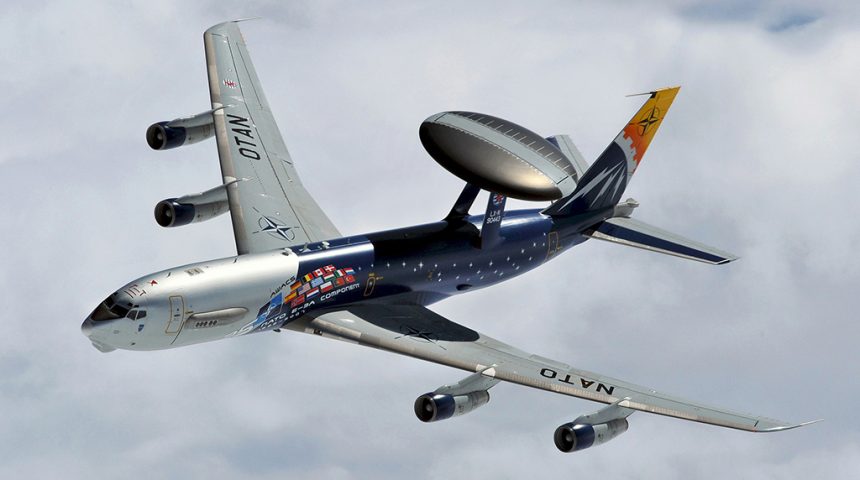A NATO AWACS has conducted surveillance flights in the skies over Turkey.
A NATO E-3 AWACS (Airborne Warning & Control System) has performed surveillance flights in the skies over Turkey as part of a new series of measures aimed to support Ankara in securing its airspace.
According to a Turkish General Staff statement reported by HurriyetDailyNews.com such measures are “in line with the Syria crisis and developments taking place in the region.”
Noteworthy the E-3 surveillance flights, which took place from Mar. 12 to Mar. 15 2016, have been conducted within the framework of NATO’s essential purpose to safeguard the freedom and security of its members.
Although nothing besides the surveillance flights involving the E-3 has been unveiled about the nature of this new defensive package, we can assume that its goal is not only to strengthen the Turkish air defenses but also to prevent other incidents near the Syrian border after that on Nov. 24, 2015 a Turkish Air Force (TuAF) F-16 shot down a Russian Air Force (RuAF) Su-24 which supposedly violated the Turkish airspace.
These new precautionary measures have increased those already taken last year because of the shooting down of the Russian attack aircraft, when few days after the incident, NATO augmented both the surveillance flights and the naval presence in the Eastern Mediterranean Sea.
Nevertheless tensions between Turkey and Russia raised again in February, when Turkey has barred a Russian Antonov An-30B from performing an Open Skies Treaty flight over its territory few days after a RuAF Sukhoi Su-34 Fullback bomber allegedly violated Ankara’s airspace.
Anyway, as declared by NATO Secretary General Jens Stoltenberg, AWACS platforms will monitor the Turkish airspace also in the coming months in an effort to provide deterrence against any possible hostile threat that could weaken Turkey’s territorial integrity.
Interestingly, the new measures were in place as the Russian Forces began Syrian withdrawal.
According to Reuters, the order given by Putin on Mar. 14 will not affect the Russian military installations and their defenses at Tartous naval base and at Hmeymim air base where the S-400 air defense systems could remain representing a threat for any aerial combat sortie conducted against Assad regime’s targets.
Image credit: NATO









